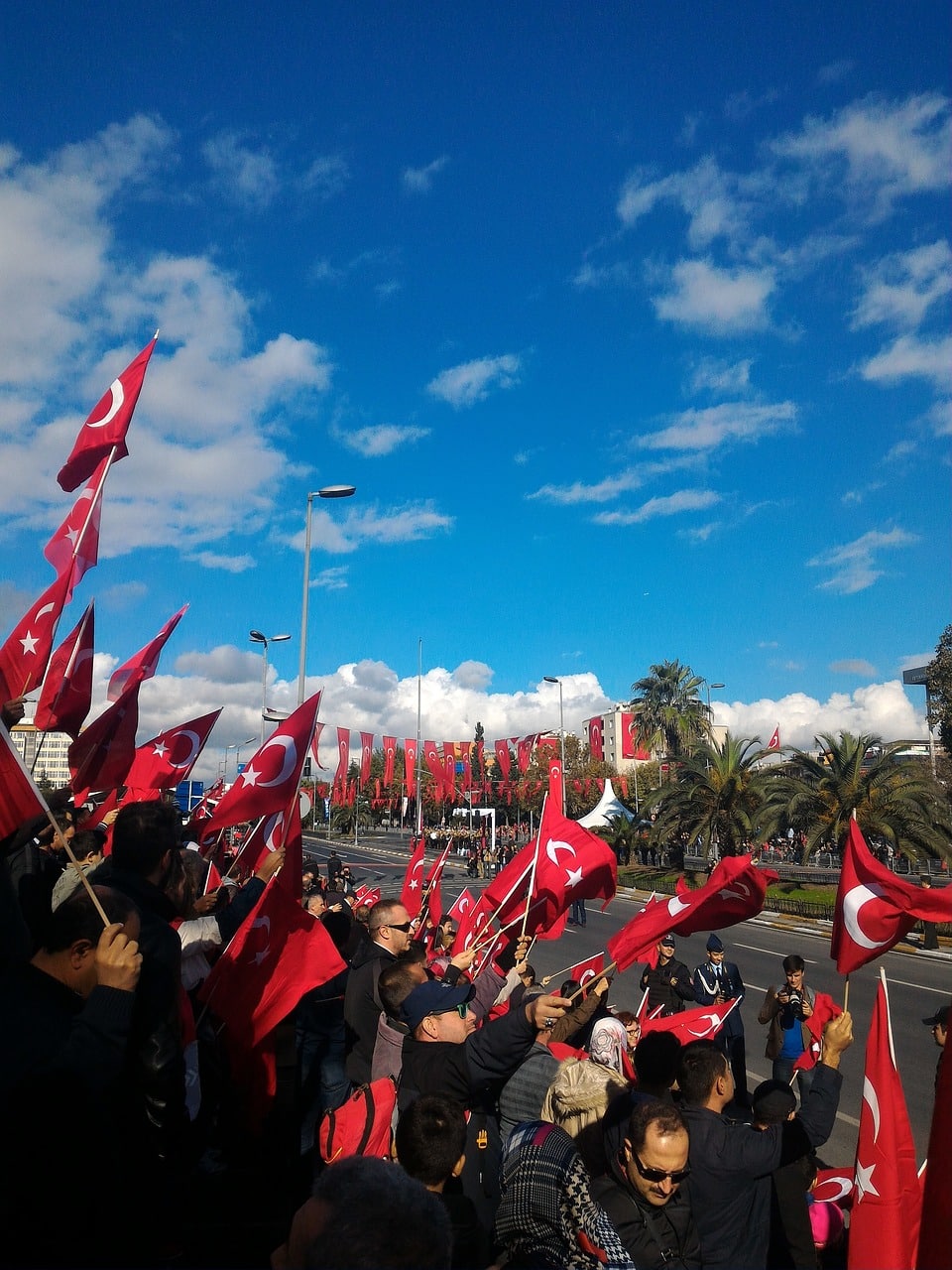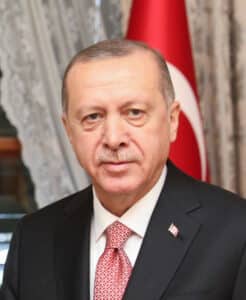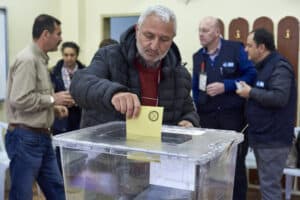Erdogan is again president of Türkiye, after the most significant challenge to his supremacy since he rose to power in Türkiye two decades ago. In last Sunday May 28’s run-off presidential election, he received 52.2 percent of the votes, while Kilicdaroglu received 47.8 percent, winning with a margin of two million votes.
Sunday´s voting turnout stood at 85.7 percent, experiencing a slight decline of around 3 percent compared to the first round held on 14 May. Erdogan won in 52 out of 81 provinces, one more than in the initial round. Kilicdaroglu replicated his performance by winning the biggest city Istanbul and the capital Ankara. Over 1.7 million out of the total eligible Turkish citizens living abroad, which is 3.4 million, casted their votes in the run-off election. Erdogan garnered 59.4 percent of diaspora votes, while Kilicdaroglu obtained 40.6 percent. As anticipated, the majority of Erdogan’s international support came from Turkish citizens living in Europe, particularly in countries with large diaspora populations like Germany, France, and the Netherlands. Additionally, significant support came from across the Middle East and North Africa. On the other hand, Kilicdaroglu gained substantial dominance in various parts of Europe and North America, securing over 80 percent of the vote in the United States, Canada, the United Kingdom, and several regions in Southern and Eastern Europe.
Polarization
Erdogan’s’ victory in the election serves as a stark reminder of the deep polarization prevailing within Turkish society, particularly highlighting the divisions between Islamists and secularists. While regions such as Türkiye’s coastline, major cities, and the predominantly Kurdish southeast showed support for Kilicdaroglu, Erdogan enjoyed strong backing from his heartland supporters. Critics of the government argue that the election outcome underscores Erdogan’s firm grip on power, including his significant influence over the country’s media landscape, which is largely aligned with groups sympathetic to the ruling party. However, Ziya Meral, senior associate fellow at the Royal United Services Institute (RUSI) thinktank, expressed that perceiving the election result only as a manipulated by the state, overlooks the extensive societal backing for Erdogan’s ideology – arguing that supporters of Erdogan contain a wide spectrum, including nationalists, Islamists, religious conservatives, and individuals who view him as reliable leader capable of effecting positive change. They all find comfort in endorsing him.
Erdogan´s promises
Erdogan triumphantly declared his victory in front of his home in Istanbul. He said: “I thank our nation, which gave us the responsibility of governing again for the next five years. We have opened the door of Türkiye’s century without compromising our democracy, development, and our objectives”. Later on Sunday night, he addressed a gathered crowd in Ankara and pressed concerns facing the country and highlighting inflation as the most urgent issue. However, he reassured the audience that solving this problem was not a difficult task. He said: “The most urgent issue is to eliminate the problems arising from the price increases caused by inflation and to compensate for welfare losses.” Additionally, Erdogan repeated his commitment to healing the wounds inflicted by the February earthquakes and emphasized the ongoing priority of rebuilding the affected cities and towns. He expressed his support for the earthquake-stricken region, assuring that his concern and assistance would continue. The second round vote on Sunday was portrayed by both Erdogan and Kilicdaroglu as a referendum on Türkiye’s future, a century after the establishment of the Republic by Mustafe Kemal Ataturk.
Kilicdaroglu responded to the election result by saying “This was the most unfair election period in our history. We did not bow down to the climate of fear”. Kilicdaroglu, who had campaigned on the promise of leading Türkiye towards a more democratic and collaborative path, stated that the results demonstrated the people’s willingness to remove an authoritarian government. He added however “all the means of the state were laid at the feet of one man.” Despite early results showing Kilicdaroglu’s defeat against Erdogan, he stated his commitment to the ongoing struggle. Securing around 47.9 of the votes in the runoff election, he emphasized that the results revealed a resolute desire among many Turkish citizens for change. He expressed his sadness regarding the challenges that lay ahead for the country. Speaking in Ankara, Kilicdaroglu highlighted the unfairness of the election, but remained determined to lead the fight for a more democratic Türkiye.
Free, but unfair elections
International observers of the Organization for Security and Co-operation in Europe (OSCE), assessing both the first round on 14 May and the run-off on 28 May, concluded that while the elections were free, they were not fair. According to them, the media bias and ongoing restrictions on freedom of expression created an uneven playing field, leading to an unjustifiable advantage for the incumbent in the elections. Frank Schwabe, the head of the delegation from the Parliamentary Assembly of the Council of Europe (PACE), called for an end to speeches targeting minorities following the elections, as well as transparency in Türkiye’s electoral procedures. The OSCE concluded that while the election administration handled the technical aspects efficiently, concerns surrounding transparency, communication, and freedom for expression persisted. The use of divisive language and the mistreatment of certain political parties’ supporters and representatives further eroded the credibility of the process.
Türkiye’s broadcasting watchdog, the Radio and Television Supreme Council (RTUK), has launched an investigation into six opposition TV channels for allegedly “insulting the public” with their coverage of the presidential election runoff. Their post-election coverage allegedly contained offensive content towards the Turkish public. Head of the RTUK, Ebubekir Sahin, emphasized that they would not tolerate disrespect towards the national will, democracy, election results, or any attempts to insult the Turkish people. These actions have drawn criticism from international rights groups and Turkish opposition parties, who view it as an attempt to suppress opposition media on behalf of the government.
Future of Kilicdaroglu
Kilicdaroglu, despite his recent loss, has not yet resigned from his position as the leader of the CHP. However, the pressure for him to step down is expected to intensify. This defeat is not the first setback Kilicdaroglu has faced since assuming leadership of the party in 2010, as the CHP has experiences losses in parliamentary elections in 2011, 2015, 2018, and 2023, as well as endorsing unsuccessful presidential candidates in 2014 and 2018. Before the election, there were already doubts surrounding Kilicdaroglu’s candidacy, as a key ally, Meral Aksener, briefly withdrew her support. Emre Erdogan, political science professor at Istanbul’s Bilgi University said the oppositions’ electoral setback complicates the formation of a “grand” alliance, but such unity remains crucial for success in the local elections in March 2024. Failure to unite again may result in reversal of the victories achieved in 2019, potentially leading to the loss of Istanbul and even Ankara for the opposition camp.
As a result, opposition politicians are now turning their attention to Ekrem Imamoglu, the mayor of Istanbul, and Mansur Yavas, the mayor of Ankara, as potential future leaders. Imamoglu, who enjoys significant popularity among opposition supporters, urged them not to lose hope and emphasized the need for change in a video message on social media. Many interpreted his remarks as a subtle suggestion that the opposition requires new leadership. He reminded them on Monday that he had won in Istanbul and another opposition figure had won in Ankara in 2019, only nine months after their previous presidential election defeat. He said: “We will never expect different results by doing the same things.” However, leadership by Imamoglu is obstructed by a court case that could see him banned from politics should his appeal fail.
What is to expect from Erdogan’s rule in the upcoming years? Erdogan’s success carries wide-ranging consequences for Türkiye’s economy, minority groups, refugees, and international relations. It also presents the opportunity for an intensified consolidation of power within the country’s political landscape. For now, the eyes of the incumbent president are on retaking Istanbul and Ankara in 2024.
Author: Manouk Bronzwaer



